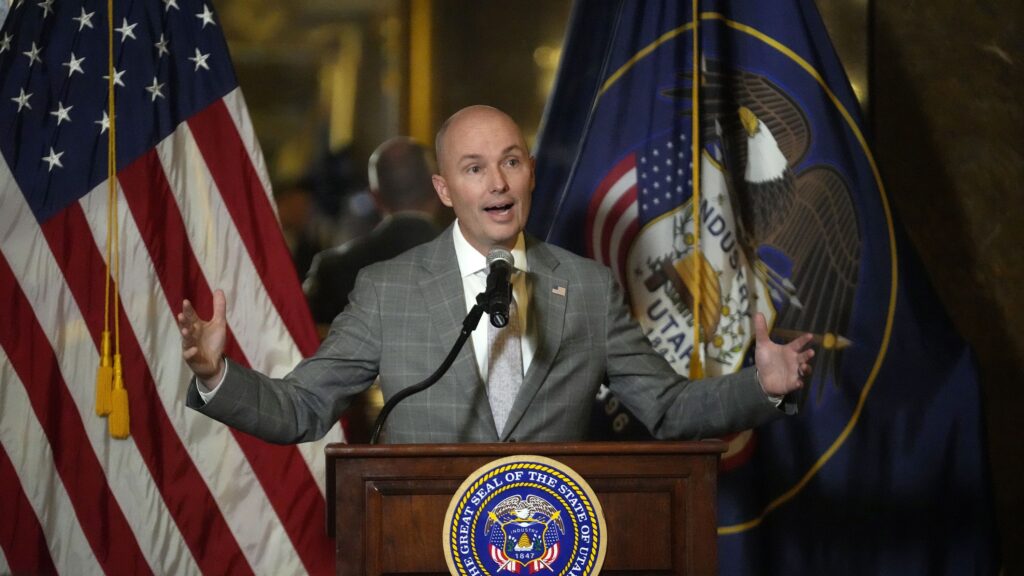Ukranian fallout and Kissinger’s counsel | SLOAN


The predominant geopolitical event of the year has unquestionably been Russia’s war against Ukraine, and everything that goes along with that. Concern over it here has largely been displaced by more pressing matters such as Harry and Meghan’s contemptuous new mini-series and the relative fortunes of this-or-that football team, but the war presses on nonetheless, as does the near- and long-term fallout.
U.S. support for Ukraine, initially relatively solid and undivided, has begun to show signs of weakening. Both parties are hosting some insurgents on the matter. Democrats, for the most part, have been surprisingly and pleasingly hawkish on helping Ukraine defend itself. This comes, of course, after deciding in 2016, following a century in the wilderness, that Russia just might be something of a threat justifying a Western military counter. Perhaps this illumination might even lead them to finally support anti-missile defense. Still, this summer a group of 30 Democratic lawmakers from the Party’s progressive wing reverted to the old ways and signed a letter urging President Joe Biden to help facilitate a “peaceful dialogue” with the Russians rather than continue to supply arms to the Ukrainians. Change comes slowly to the change-everything-now crowd.
But a handful of Republicans have been disappointing on the issue as well. There seems to be a small, but growing, voice of discord among some GOP lawmakers, generally those of the Trump-variety, who are flirting dangerously with the isolationist impulse. Most of their voiced concerns are couched in the rhetoric of fiscal responsibility – the need for oversight of the dollars spent helping Ukraine, and resistance to any “blank checks” sent to Kyiv. There is some merit to the sentiment, but some perspective is in order: the U.S. to date has sent about $68 billion in combined aid to Ukraine. President Biden’s request would bring that to around $105 billion, which, as George Will pointed out last week, is roughly one-eighteenth of what Congress forked out in just a single spending bill last year. This iterant rebellion amongst some Republicans sounds awfully like the traditional caterwauling of Democrats over the nation’s military spending.
There should be no mistake that the war in Ukraine holds serious geopolitical ramifications for the West and for America. In launching the first European land war of the 21st century, Russia may very well lose its traditional buffer against Western invasion, and deservedly so. Henry Kissinger, with his central hold on good sense, said as much in his most recent book (yes, Henry Kissinger is still around, and yes, he is still writing books) where he wrote: “If Ukraine were to join NATO, the security line between Russia and Europe would be placed within 300 miles of Moscow – in effect eliminating the historic buffer which saved Russia when France and Germany sought to occupy it in successive centuries.” Kissinger has always resisted Ukrainian membership in NATO for that reason. He told The Wall Street Journal in August that he always felt that buffer best supported European stability: “I was in favor of the full independence of Ukraine, but I thought its best role was something like Finland.” Following Russia’s brutality, however, “one way or the other, formally or not, Ukraine has to be treated in the aftermath of this as a member of NATO.”
While in the long term the war holds some pretty heady strategic consequences, in the short term, at least in the geopolitical sense, it has become an energy war. In the Ukraine, since getting bogged down on the battlefield, Russia has been deliberately targeting energy infrastructure, hoping to essentially freeze and starve the Ukrainians into submission. Outside the Ukraine, energy features a little less acutely, but just as prominently. Russia’s major export – and source of revenue for its continuing aggression – is oil and gas. This reality butts up against confused and contradictory Western priorities; the West wants to cut off Russia’s revenue sources, but at the same time Europe finds itself hopelessly desperate for Russian natural gas. Most of Europe painted itself into a corner by eschewing both nuclear power and domestic production of its own reliable energy, rushing to embrace renewables at a pace that guaranteed reliance on Russian sources for the foreseeable future. Now they are scrambling to find new sources of gas, and ways to reduce its use. Among other things this has led to Europe becoming a net importer of chemicals for the first time in the modern era.
Yes, it’s complicated, not as much fun as watching Harry and Meghan, and requires some focus in American leadership, which Kissinger worries is lacking: “I think that the current period has a great trouble defining a direction,” he says. Just so. Henry Kissinger’s counsel is no less relevant now than it has been for the last half a century.
Kelly Sloan is a political and public affairs consultant and a recovering journalist based in Denver.













